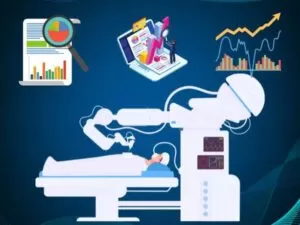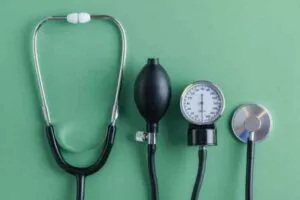Discover the Wonders of Medical Laboratory Instruments!
Medical laboratory instruments are some of the most important pieces of equipment in the medical field. However, understanding them and what their functions are can be difficult for someone without background knowledge. This article outlines some of the biggest medical laboratory instruments and explains their use in medical labs. However, understanding them and what their functions are can be difficult for someone without background knowledge.

Opening a lab? Here’s what you need to know!
If you are new to a medical laboratory and trying to understand the environment, the first question that comes to mind is ‘What are all these instruments?’ Medical laboratories consist of numerous complicated and specialized instruments used for various tests. There is a range of platforms for understanding the different diagnostic processes ranging from blood-based testing, microbiological analysis, genomics, histopathology, and many others.
- Here’s a list of steps to help you understand medical laboratory instruments:
- Master the Basics:Start with studying basic terms related to laboratory instruments, such as spectrophotometers and centrifuges. Understand what each instrument does and how it works. It is important to learn about basic safety protocols before working in a lab so that you can minimize any risks associated with hazardous materials like chemicals or equipment malfunctions.
- Understand Clinical Applications:It is important to know the clinical applications in which each tool is useful; this will give you an idea of when an instrument should be used and how its results should be interpreted according to each situation. For example, a chromatography instrument can be used for biopharmaceuticals but also for biomedical research.
- Study Different Histological Methods:Histology involves analyzing tissues under microscopic examination. In order to work proficiently with the available histology methods, such as immunohistochemistry or tissue culture techniques, make sure you familiarize yourself with them before test-running any samples.
- Practice using Instruments/Equipment:Gaining hands-on experience operating multiple types of lab equipment in real time may be incredibly helpful for understanding instrument functions better without needing theory study completely beforehand. Becoming confident enough with certain types of machines or software allows practitioners to apply their knowledge quickly on other models or tasks related to their work environment as well; this helps practice versatility which may come in handy when dealing with challenging specimens or complex data research projects requiring rapid responses during short deadlines timespan frames; good preparation is paramount!
Get The Complete List Of Medical Laboratory Instruments Now and Discover Their Uses!

- Centrifuges:A centrifuge is a tool that quickly separates materials into lighter and heavier components. Modern centrifuges are essential tools in medical research and testing, as they help separate cells, bacteria, enzymes, hormones, and other substances suspended in liquid samples.
- Microscopes:Microscopes allow scientists to observe objects at incredibly small scales, ranging from smaller than a single cell to larger organs like hearts or brains. They allow doctors to diagnose many diseases based on visible evidence within cells or tissues Thanks to microscopic images generated by electron microscopes, researchers have gained remarkable insight into diseases like cancer and Alzheimer’s disease.
- Analytical Balances:Analytical balances measure exactly how much material is present in a sample. balances are essential for any lab dealing with chemical or biological materials as they can precisely measure even minuscule masses down to millionths of a gram scale.
- Spectrophotometers:Spectrophotometers measure how much light a sample absorbs or emits across specific wavelengths of color—or the color spectrum—typically within ultraviolet (UV) or infrared (IR) ranges beyond human sight. With spectrophotometers, scientists can determine the concentration levels of molecules like proteins, RNA strands, and enzymes inside liquid substances very accurately.
- Reaction Chambers:Reaction chambers allow scientists to study chemical reactions on a molecular level with minute control over environmental parameters such as temperature and pressure levels during experiments without contamination from outside air particles and gases that might affect results accuracy.
The Need For Good Medical Laboratory Instruments

Medical laboratory instruments are of great importance in modern medicine, and their role can never be over-emphasized. The advent of digital technology has revolutionized the way medical laboratories function and it’s now possible to diagnose diseases that were once only detected through tests conducted in a conventional laboratory setting. In this article, we’ll take a look at some of the main reasons why medical laboratory instruments are so important today.
- Accurate Diagnosis and Treatment Options:Medical laboratory instruments play a key role in providing accurate diagnostic results for various diseases. It also helps in aiding doctors in taking advised measurements for patient treatment options. With advanced precision, these instruments give a more exact diagnosis than ever before. It also provides more effective treatment which can provide better outcomes for patients.
- Faster Lab Results:Lab results can significantly impact how quickly a doctor is able to present an accurate diagnosis. Medical laboratory instrumentation eliminates the need for manual analysis steps and allows lab technicians to generate test results faster.
- Enhanced Quality Control Procedures:Medical lab instrumentation increases accuracy and efficiency when it comes to quality control procedures. Such as double-checking results from machines or running additional tests on previously tested samples. Lab technicians have access to specialized software programs that allow them to view detailed reports of any errors. It also tracks data over time for future reference.
- Reduced Risk of Human Error:Automation through medical lab instrumentation also helps reduce the risk of human error by eliminating manual steps that often introduce errors in data collection activities.
- Improved Patient Safety Measures:Since medical lab instruments facilitate faster, more accurate diagnoses it helps improve patient safety. This gives physicians the necessary information for quick decision-making concerning their patient’s health care needs. This happens without having to worry about incorrectly assessing a situation or missing vital clues based on faulty data.
How do These Instruments Improve Clinical Decision Making?

For decades, medical laboratories have been an essential part of the healthcare process. From testing to evaluating and monitoring patients’ health status over time, the use of laboratory instruments has been integral in helping practitioners make accurate diagnoses and provide better patient care. In today’s world, the importance of medical laboratory instruments is perhaps more critical than ever before due to their ability to accelerate the discovery and development of products that can help improve patient outcomes.
Medical laboratory instruments are indispensable tools for clinicians when making decisions about treatment options or preventive measures. With their ability to reveal otherwise undetectable aspects of a patient’s condition, such as changes in blood chemistry or genetic structure, lab instrumentation can play a crucial role in how a medical team approaches its decisions regarding a case.
- Support Outpatient Care:As more people increasingly seek outpatient care, medical lab instrumentation is becoming even more important. By providing fast and reliable results directly from samples taken at home, lab instruments can help. It ensures that treatments continue without disruption.
- Instruments Help Researchers Advance Knowledge:The importance of medical laboratory instruments extends beyond their usefulness in diagnosing diseases. Without access to these high-tech tools, valuable research may not be possible now or in the future.
- Instruments Enhance Safety for Patients:Finally, modern medical laboratory instruments greatly enhance safety for patients by reducing errors through automation. With improved accuracy of results compared with manual testing protocols. It quickly identifies pathogens present in a sample speeds up diagnosis times and lowers the chances for infection transmission. As advances in technology continue forward at an exponential rate, the importance of modern medical laboratory instruments will only increase.
Need For the latest Medical Laboratory Instruments
Medical laboratory instruments are essential tools in the analysis and detection of pathologies and diseases. From anatomical laboratories to doctor’s offices, medical instrumentation has become commonplace across the globe. Here, we’ll outline the importance of medical laboratory instruments.
- Accuracy: Medical laboratory instruments play a key role in providing labs with accurate results that can be used for diagnoses. These devices can perform tests quickly and accurately, without causing any additional strain. They also reduce manual efforts needed for certain processes, thus saving precious time in collecting data from various sources.
- Improved Quality of Care:Medical laboratory instruments have opened up opportunities for better patient care. An area that was long neglected due to manual practices being limited both in accuracy and quality. Lab machines not only offer precision-based results but also provide more reliable outcomes compared to traditional methods. Consequently, this improves the overall quality of medical services leading to improved patient satisfaction.
- Cost Efficiency:Although medical instruments may seem expensive at first glance, they can help reduce hospital costs. By automating some tedious tasks such as inputting patient data into databases. When analyzing samples under a microscope, lab machines drastically reduce human efforts needed for operation. This results in cost savings for both staff time and good hospital overall budgeting expenditures.
The Final Sum Up,
Medical laboratory instruments are essential for the accurate diagnosis and treatment of diseases. They enable healthcare professionals to detect microorganisms, measure cells, monitor vital signs, diagnose diseases, and study genetic material. An understanding of the different types of medical laboratory instruments is essential for providing quality care to patients.







